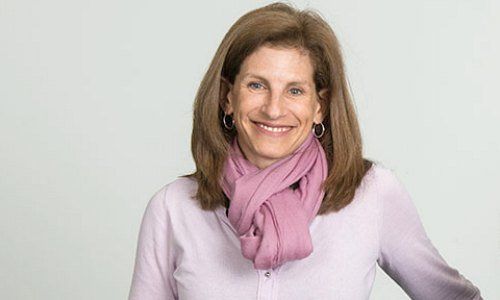UBS CEO Sergio Ermotti has told the Swiss bank's gift-giving arm to expand its assets by nearly two-thirds. finews.com checks in with Phyllis Costanza, head of UBS' newly-created philanthropy team.
Phyllis Costanza, UBS has emphasized philanthropy in various ways in recent years. What’s changed?
We’re trying to get our clients to dream bigger and to try to work with other people like non-profit-organizations, governments, or so-called outcome payers, who add an incentive for actually delivering measurable improvements. We’ve been much more active in the social finance space – which should have both a financial return but also a very high social return.
How is that different from traditional philanthropy?
An example: we granted a loan to provide clean water systems to schools in Uganda. Our theory is that with clean water, school attendance will rise because of fewer illnesses. The systems themselves aren’t enough: you need to train teachers to ensure kids drink clean water, wash their hands to prevent the spread of illness and so on.
«Incentive payment helps returns»
The returns can reach as high as 8 or 9 percent and the interest on the loan for impact water can go as low as 1.9 percent – if the target number of systems are installed and school attendance rates reach the target level. This is thanks to an incentive payment by the Rockefeller foundation.
Philanthropy is learning from high finance?
We are joining up the best in the non-profit world with the financial world. In major commercial real estate projects, developers don’t finance everything upfront. Philanthropy doesn’t need to either: for an $8 million project, you probably only need to raise $3 million, because if its successful, you can recycle the returns after, for example, about 12 months for the following years.
You don’t charge for philanthropy services. Why does a publicly-listed for-profit firm need to be this deeply entrenched in charity work?
Because it matters to our clients. People want to make an impact in the world. More than 90 percent of our largest clients are engaged in philanthropy, yet fewer than 20 percent are satisfied they're making an impact.
«Many wealthy choose not to leave it all to their children»
Some say, «what am I going to do with all of this money anyway?» A lot of wealthy people are also choosing not to leave it all to their children. Many people want to give it away in their lifetime too.
What are some of the pitfalls?
Some ideas come with the best intentions, but are projects we cannot support such as orphanages. In fact, they are horrible places for children, where they are at risk for trafficking, sexual abuse, undernutrition, and undereducation. There are about 8 million children living in orphanages, but more than 80 percent aren’t actually orphans.
What is the incentive for the private banker to bring you a client, when perhaps they would rather manage the money for themselves?
They don’t get a bigger bonus – but their clients are thrilled. It deepens the relationship with clients considerably. We do field trips to see projects four times a year, and clients are blown away by that.
«Private bankers need to cover making money as well as giving it away»
With managing somebody’s wealth, there’s a whole spectrum from giving money away to investing to make more money. We’re seeing clients now increasingly looking to client advisers to offer the whole range.
UBS’ philanthropic business has been through some changes – and you’re much bigger now.
We’ve grown dramatically: in 2012 we raised about 10 million Swiss francs from our clients. Last year, it was more than 61 million francs.
«Registered in China, setting up in India»
We’ve also expanded from initially only a foundation in Switzerland to one in Germany, the U.K. and a donor platform in the U.S. We also have a branch in Hong Kong, are registered to give international donations into China, and are in the process of setting up in India.
What’s next?
Sergio Ermotti, who chairs Optimus' board, set a goal of 100 million francs in donations and grant making in 2020. We will meet that.
Phyllis Costanza has been the head of UBS' Optimus Foundation since 2011. This week, she was also named head of philanthropy services, a 45-strong department devoted to helping the Swiss bank's clients give charitably. Previously, she was a senior executive and director of the Children's Investment Fund Foundation, or CIFF, the charitable arm of hedge fund activist Chris Hohn and his now ex-wife, Jamie Cooper. She has worked as a management consultant and advised New York State Governor Mario Cuomo on policy and politics in Manhattan. Costanza, who recently returned to New York after ten years in Zurich, graduated with a Master's degree in public policy from Harvard University.




































